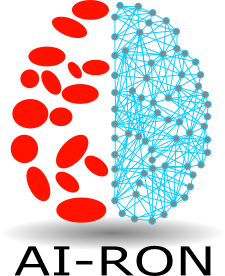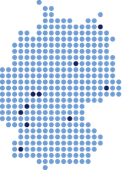AI-assisted morphomolecular Precision Medicine in Neurooncology
About the project

Brain tumours are not only associated with large socio-economic costs, but also with high psychosocial morbidity, as they affect the organ of consciousness and perception (“seat of the ego”). They are among the deadliest cancers with few currently available treatment options and are the second most common cancer in children. In recent years, their treatment regimen has become increasingly individualised through the use of molecular markers with prognostic or predictive significance. Most importantly, recent genomic analyses have identified an extensive catalogue of recurrent genetic mutations and epigenetic alterations in malignant brain tumours. With the Junior Research Group (NWG) “AI-RON: AI-assisted morphomolecular Precision Medicine in Neurooncology”, we aim to usher in the next era of morphomolecular diagnostics by developing Artificial Intelligence (AI)-based medical informatics pipelines to improve the quality and speed of brain tumour diagnosis, as well as to personalise and (cost)-efficiently target therapeutic approaches.
The integration of histomorphological and molecular pathological changes is indispensable for oncology in order to be able to make precision therapeutic decisions via accurate tumour classification and detection of therapy targets. Current challenges include the application of machine learning algorithms to extract essential information from disparate high-dimensional data sources, the definition and harmonisation of analysis pipelines, and the generation of easily interpretable reports for physicians. The Big Data generated by Next-Generation Sequencing (NGS) analysis and digital histopathology, together with clinical meta-data such as survival rates and treatment regimens, provide a solid foundation for the AI-based advancement of precision medicine.
Goals
The goal of the NWG will be to develop an AI-based precision analysis of “Whole-Slide Images” (WSI) in combination with high-dimensional omics data and clinical metadata for the classification and prognostic predictability of brain tumours within the framework of the medical informatics initiative MIRACUM. Within the framework of Use Case 2 “Neurooncology (from-data-to-knowledge)” (project management Gießen) of MIRACUM, we can access a large data pool of the participating university hospitals and evaluate aggregated neurooncological morphomolecular and clinical data across sites in compliance with data protection regulations. The algorithms and pipelines developed within the NWG will be able to be prospectively extended to the integration of further high-dimensional data such as radiomics and other tumour entities. The NWG will thus make an important contribution to strengthening the thematic field of the Medical Informatics Initiative in the important area of AI in health research and care.
Lead of the Junior Research Group

Dr. Daniel Amsel
Lead of the Junior Research Group AI-RON
Institute for Neuropathology | Justus-Liebig-Universität Gießen

